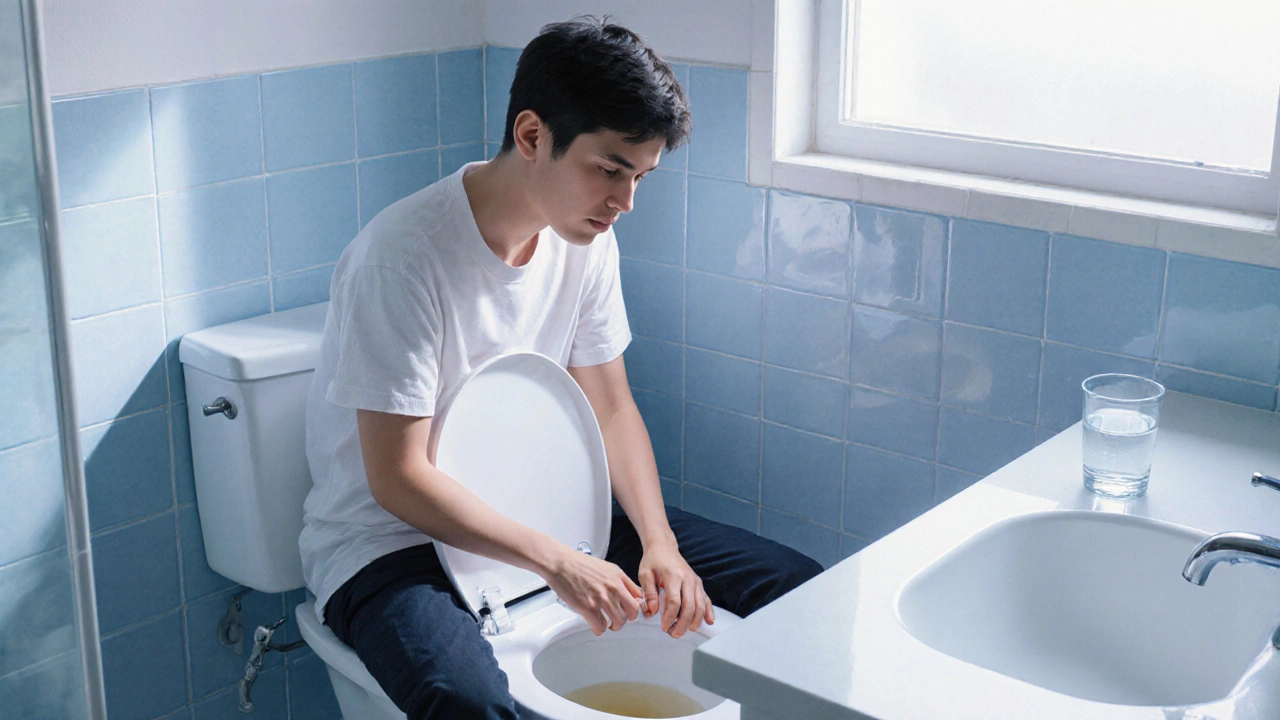Ever wonder why you feel sluggish after a night of little water? Your body is basically a water‑filled machine, and every system depends on the right fluid level. From keeping your throat from drying out to supporting kidney function and even reducing the risk of urinary leaks, proper fluid intake is a simple, inexpensive health hack.
Most guidelines point to about 2 liters (8 cups) for women and 2.5 liters (10 cups) for men, but the exact amount shifts with age, activity, climate, and diet. A quick test: if your urine is light yellow or almost clear, you’re probably on track. Dark amber means it’s time to drink up. Remember, coffee, tea, and even fruits count toward your total, but sugary drinks can add unwanted calories.
1️⃣ Set a reminder. Use a phone alarm or a hydration app that pings every hour. You’ll be surprised how often you forget to sip.
2️⃣ Carry a reusable bottle. Having water at arm’s reach makes it easy to take small sips throughout the day instead of gulping once in a while.
3️⃣ Flavor it naturally. Add a slice of lemon, cucumber, or a few berries. The taste boost can trick a picky palate without adding sugar.
4️⃣ Pair drinking with routines. Drink a glass after brushing your teeth, before each meal, and right after you stand up from a desk. Linking water to habits builds a reliable pattern.
5️⃣ Watch your sweat. If you work out, spend time outdoors, or have a hot job, add an extra 0.5 – 1 liter for every 30 minutes of moderate activity.
These tricks keep you from hitting the dreaded “I forgot my water bottle at home” moment.
Beyond the basics, staying hydrated can help protect the lining of your throat and nasal passages. Dry air, smoke, and allergens irritate those membranes, but a steady flow of moisture reduces the damage. That’s why people with chronic throat irritation often hear advice to sip water regularly and use a humidifier.
Hydration also plays a role in weight management. Drinking water before meals can create a sense of fullness, leading to smaller portions. For those tackling obesity‑related urinary incontinence, a balanced fluid plan—enough water but not excessive—helps the bladder function without overloading it.
If you’re unsure about your personal needs, start a simple log: note the amount you drink each day and how you feel. Over a week you’ll spot patterns—maybe you’re low on weekends or after late‑night screen time.
Lastly, remember that not all fluids are created equal. Alcohol and caffeine have mild diuretic effects, meaning they can increase urine output and potentially cause mild dehydration if not balanced with water. So for every coffee cup, add an extra half‑glass of water.
Bottom line: fluid intake is a daily decision that influences energy, skin, digestion, and even mental clarity. Keep a bottle handy, set a reminder, and listen to your body’s color cue. Your future self will thank you with smoother mornings and fewer trips to the bathroom at odd hours.

Learn how dehydration concentrates urine, irritates the bladder, and triggers spasms. Get practical hydration tips, risk tables, and guidance on when to seek medical help.